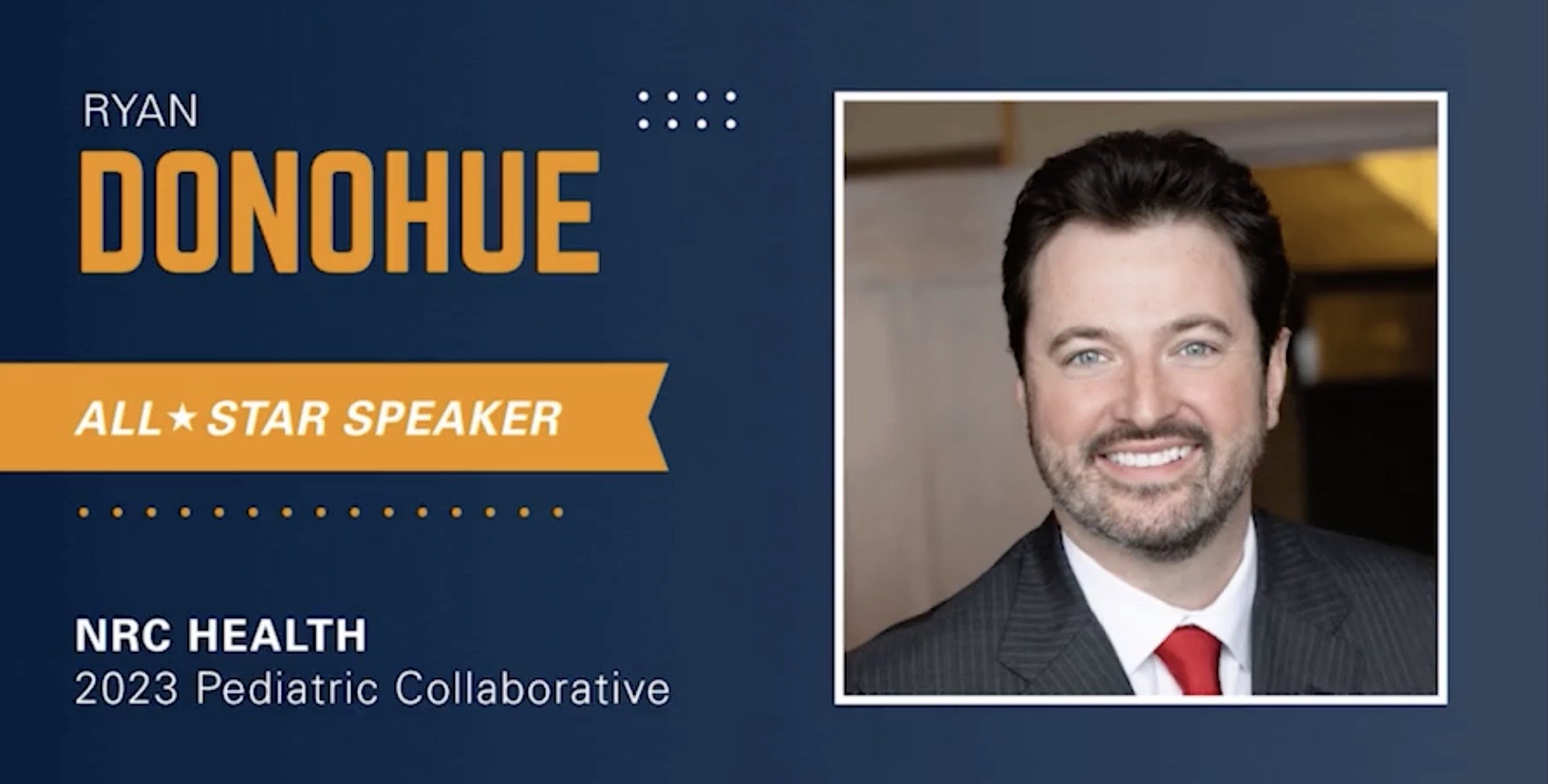Co-Navigating Care: How to bolster the parent-child bond in post-COVID pediatrics

Co-Navigating Care: How to bolster the parent-child bond in post-COVID pediatrics
The pandemic profoundly impacted the bond between parents and children—and parents are now faced with managing a gauntlet of new stresses.
Ryan Donohue, Strategic Advisor at NRC Health, explains that while most parents believed parenting was difficult before the pandemic, post-COVID parenting remains rife with challenges like learning disruption and deficits; runaway inflation on family budgets; increased stress, anxiety, and depression across age groups; and managing children’s fear of the world they’re entering.
“It’s not just keeping our kids safe with us, but also motivating them, disciplining them, making sure that they’re growing as people,” he said during a presentation at NRC Health’s recent Pediatric Collaborative. “Doing that in relation to our work, our marriage—it’s a lot.”
Healthcare’s chronic chaos affects everyone:
- COVID’s presence as a common enemy has faded
- Patient deferment of care remains stubbornly high (27%)
- “No preference” for any one brand remains high among patients
- 32% of U.S. adults state no preference
- Telemedicine/virtual care has predictably plateaued
Donohue says that one of the interesting things about looking at consumer behavior among adults in America was finding that for a brief period in 2020, COVID was actually a unifying factor. But there have been incredible changes since then, and COVID no longer unifies us.
“In many ways, it’s brought us further apart and created more division,” he says. “We can talk all about our patient records and keeping track of our patients, and we have lots of work to do there. But we also have people who defer care—a phenomenon we’ve studied since the Great Recession in 2008, when people started electively putting off care. In 2023, 27% of adults deferred care for themselves or, in many cases, for their children. So, sadly, we’ve got parents deciding to put off care for themselves because of cost.”
Donohue notes that though this has understandably created a great deal of anguish among parents, it’s even more critical to identify because children are now experiencing more mental-health issues than ever before, and parents need to be aware of these potential problems.
Profile of a post-COVID child:
- One issue arises in the near term as an area of utmost importance: mental health
- The pandemic didn’t create mental-health issues, but it has certainly exacerbated them
- One in six children and adolescents in the U.S. has a behavioral- or mental-health condition
Donohue says that “Making an appointment with a doctor” is often cited as the “First step in a care journey” for parents and is seen as more popular than “Sensing a problem,” “Researching a problem,” and “Walking into a first visit.” This is important data in light of other considerations, such as the fact that parents are ten times more likely to be detractors if forced to wait more than an hour for care.
“Something I would encourage you to think about is, we have people who come through our doors who have a physical ailment and a mental-health challenge,” Donohue says. “But because we look at them as walking through that door with some sort of physical ailment—something where we know what it is, we know how to identify it, we can follow the process to treat it—we might ignore, during that entire care journey, the mental-health issue that they also have, which is right in front of us the entire time. As an industry in pediatrics, we’ll have to watch this and study this.”
Click here for more on this presentation and the NRC Health 2023 Pediatric Collaborative.

